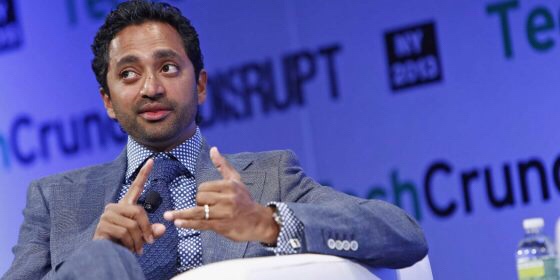Former Facebook Executive: ‘You Don’t Realize It, But You Are Being Programmed’

Mac Slavo | SHTFplan | Dec. 12, 2017
A former Facebook executive, who openly admits to not using social media, has come out about the role he played in “ripping apart the fabric of society.” Chamath Palihapitiya has publicly declared that he didn’t really understand “the consequences” of what he was doing.
This isn’t the first time a social media powerhouse has come forward with regret for helping create a social media platform either. Facebook’s first president, Sean Parker, opened up about his regrets over helping create social media as we now know it last month. Parker has said that social media creates “a social-validation feedback loop” by giving people “a little dopamine hit every once in a while because someone liked or commented on a photo or a post or whatever.”
Palihapitiya, who worked for Facebook from 2005-2011, expressed his concerns during a recent public discussion at the Stanford Graduate School of Business. He told the audience, “I think we have created tools that are ripping apart the social fabric of how society works.”
“So we are in a really bad state of affairs right now, in my opinion. It [social media] is eroding the core foundation of how people behave by and between each other. And I don’t have a good solution. My solution is I just don’t use these tools anymore. I haven’t for years,” said Chamath Palihapitiya, the former vice president of user growth. “I don’t know if I really understood the consequences of what I was saying, because of the unintended consequences of a network when it grows to a billion or 2 billion people and it literally changes your relationship with society, with each other,” Parker said. “God only knows what it’s doing to our children’s brains.”
Palihapitiya, who is a millionaire thanks to his role in Facebook’s growth, also admitted it wasn’t about the Russian ads. We’ve done this damage to ourselves and fueled an addiction of sorts. “The short-term, dopamine-driven feedback loops we’ve created are destroying how society works,” he told the audience said. “No civil discourse, no cooperation; misinformation, mistruth. And it’s not an American problem—this is not about Russians ads. This is a global problem.” And Palihapitiya admitted to feeling guilty for his role. “I feel tremendous guilt. I think we all knew in the back of our minds—even though we feigned this whole line of, like, there probably aren’t any bad unintended consequences. I think in the back, deep, deep recesses of, we kind of knew something bad could happen. But I think the way we defined it was not like this.”
Palihapitiya said he doesn’t use social media because he “innately didn’t want to get programmed.” As for his kids: “They’re not allowed to use this sh*t.” That seemed to strike a nerve too. Palihapitiya admitted that social media is “programming” the behaviors of users. “Your behaviors—you don’t realize it but you are being programmed. It was unintentional, but now you gotta decide how much you are willing to give up, how much of your intellectual independence,” he told the students in the crowd. “And don’t think, ‘Oh yeah, not me, I’m fucking genius, I’m at Stanford.’ You’re probably the most likely to f*cking fall for it. ‘Cause you are f*cking check-boxing your whole Goddamn life.”
The consequences of a social media addiction were unknown until recently. Now, it certainly seems almost as harrowing as an alcohol addiction. With one in six Americans now on anti-depressants and desperately seeking attention through social media, could Palihapitiya be onto something? Has social media damaged the social fabric of our society?
Originally published @ SHTFplan.com
SHARE:
